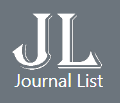Waqf: An Analysis of the Global Management Practices
Abstract
The present study is an attempt to critically review the various Waqf management practices in vogue in different countries of the world in order to highlight the need for an effective management of Waqf that can galvanize the process of development and progress across the globe. The study examines the Waqf management practices globally with the help of the socio-legal research methodology to delineate the methods of management. Although some studies have been conducted to understand Waqf management in the context of a specific country, comparisons across countries are very limited. The present research study aims to fill this gap. It draws lessons from several countries, including success stories from Malaysia, to explain the effective Waqf management practices. At the same time, it also sheds light on the problem of moral hazard in Waqf management. Our findings reveal that there is a dearth of uniform standards for an efficient Waqf managerial framework. Given each country’s unique socio-economic and political context, countries generally employ different practices in terms of managing and developing their Waqf. In a nutshell, the study finds that successful Waqf management practices include the supportive role of the independent, authoritative Waqf supervisory body particularly in Kuwait, Egypt, Indonesia, and Sudan. Moreover, a strategic reform approach with appropriate regulatory policies combined with effective monitoring procedures and accountability of Mutawallis by addressing the moral hazard problem will provide a scenario which is conducive for effective Waqf management globally.












